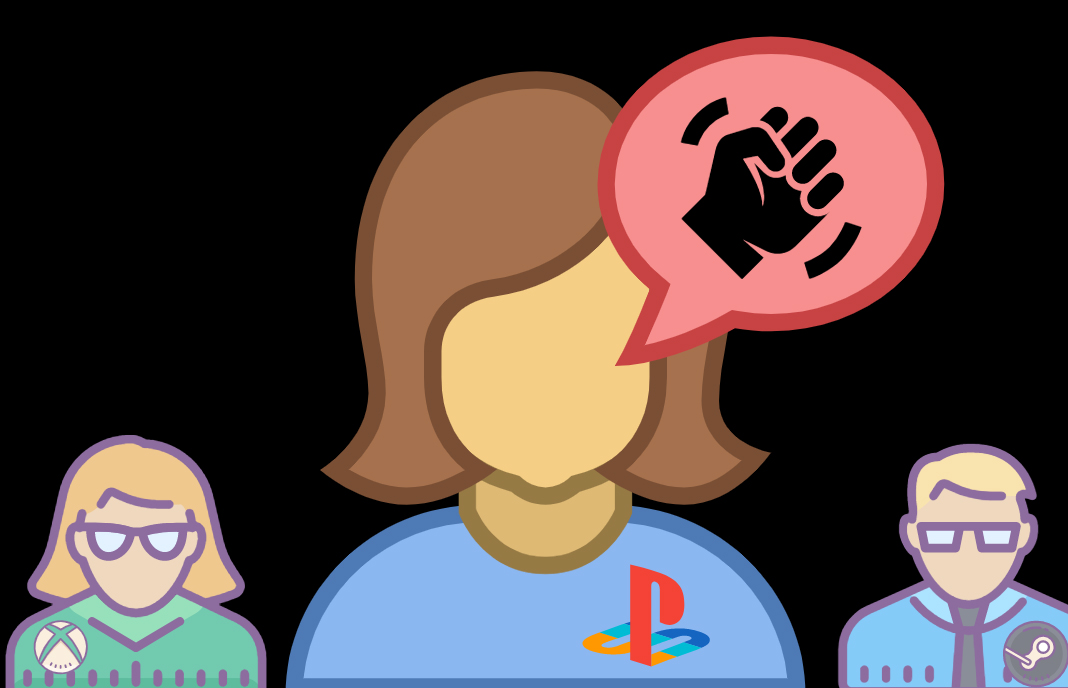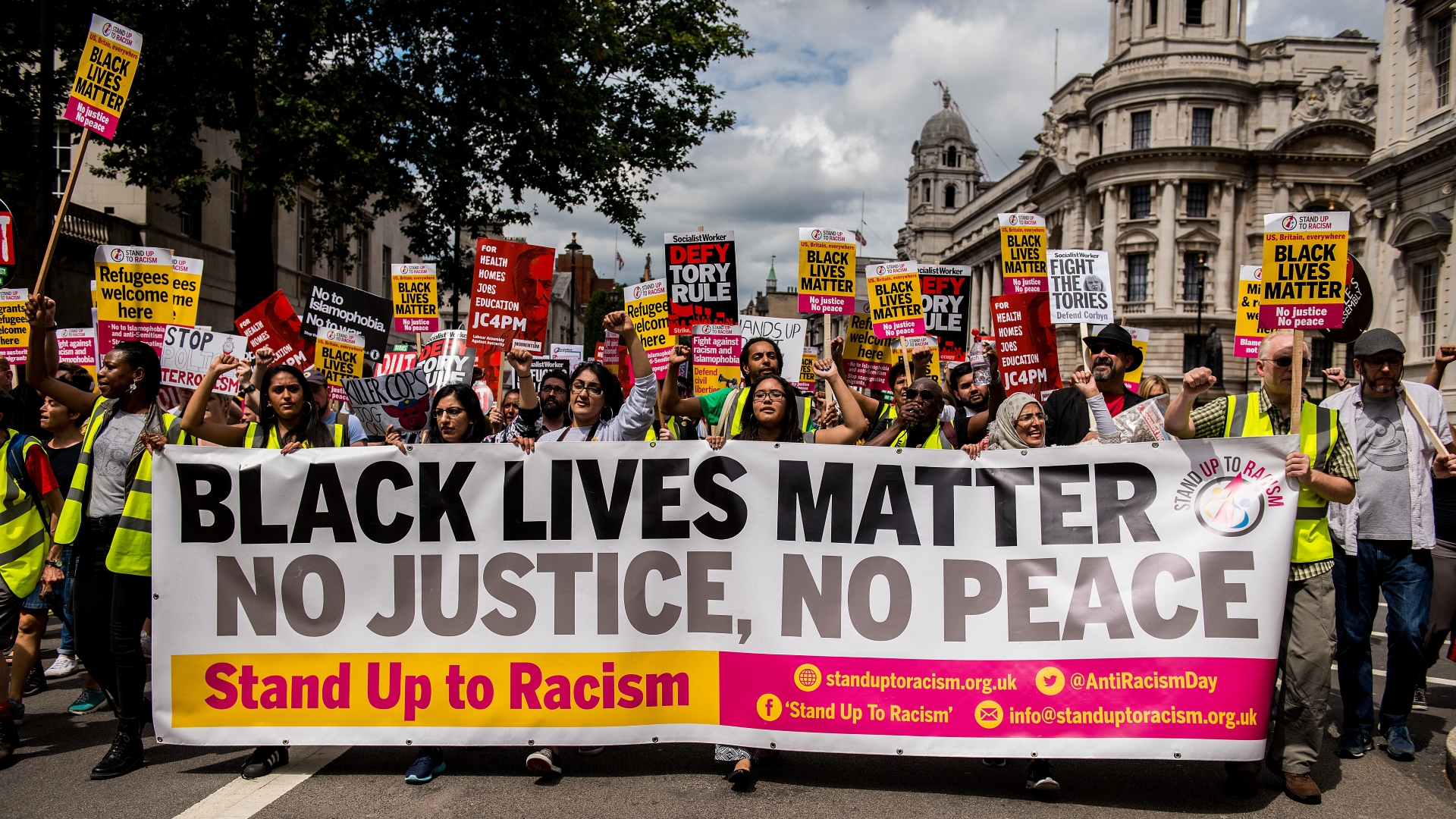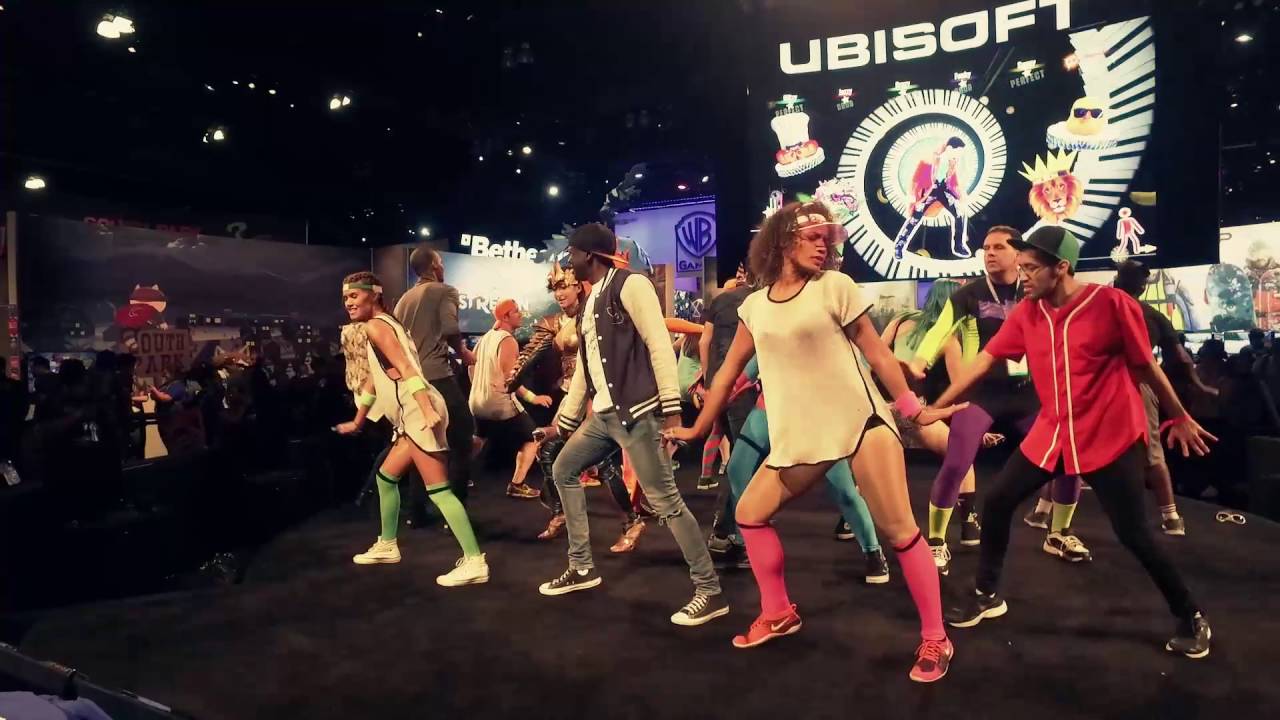Gaming giants tweeted #BlackLivesMatter — but are they actively supporting it?
All tweet, no bite

Sign up to receive The Snapshot, a free special dispatch from Laptop Mag, in your inbox.
You are now subscribed
Your newsletter sign-up was successful
#BlackLivesMatter — it’s the hashtag gaming giants were once mum about, but amid nationwide anti-racism protests spurred by the brutal murder of yet another black American, PlayStation, Xbox, Nintendo and more have changed their tune.
But why have big-name conglomerates been silent for so long?
- Black Lives Matter: What you can do to help
- Xbox, Sony and others unite against racism and police brutality
- Xbox Series X vs. PS5: Which console is right for you?
Perhaps they thought condemning racial injustice would be too “controversial,” which, if you think about it, is baffling. All Americans are entitled to a speedy trial and impartial jury, according to the Sixth Amendment. But oddly enough, advocating for those constitutional rights to apply to everyone, regardless of skin color, is somehow incendiary in 2020. It’s bewildering, but then again, racism has never been rooted in logic.
Racism is far more insidious than the virus that’s been plaguing the world — it seeps into the minds of hiring managers, loan officers, realtors, and in the case of police brutality, our very own law-enforcement authorities. Believing in the myth of racial inferiority, they subsequently pin disadvantaged communities down in their positions of power.
Black Americans such as Mike Brown, Eric Garner, Ahmaud Arbery, George Floyd and Breonna Taylor took their last breath in the hands of ill-intentioned police officers who killed them before they could exercise their Sixth Amendment right. With Floyd’s murder being the greatest impetus, these widely publicized deaths sparked global outcry from all backgrounds and ethnicities — not only are people demanding change within the police force, but they’re urging all the powers that be to dismantle systematic oppression.

Enter PlayStation, Xbox, Nintendo and other gaming giants — all have made statements on Twitter denouncing racism and pledging support for the black American community.
pic.twitter.com/fnkB9ZmYg5June 1, 2020
Joshua Rivera of The Verge and Ethan Gach of Kokatu both wrote thought-provoking pieces about the video-game industry’s anti-racism advocacy on social media. Rivera and Gach insinuated that these tweets lacked sincerity and gaming giants are just latching on to a trending topic as a marketing tactic, and for most companies, I suspect they’re right.
Sign up to receive The Snapshot, a free special dispatch from Laptop Mag, in your inbox.
Call me a cynic, but I don’t believe that big-name businesses — entities that solely exist to make money — will go to bat for marginalized communities purely out of the goodness of their hearts. The only way to impel businesses to support just causes is to accurately answer “What’s in it for me?”
Case in point: Valve, the company behind Steam, was conspicuously silent while other gaming giants chimed in on Black Lives Matter. Independent developers began yanking their games off of Steam to protest Valve’s muteness.
“It’s clearer than ever that the owners of [Steam] feel beholden to a base of angry white male gamers,” Art Sqool’s Julian Glander announced on Twitter. “This makes me especially sad because I feel that some of these people are the people who most need to hear the message of Black Lives Matter.”
tonight i pulled all my games from @steam and i don't see myself publishing with them ever again. i urge other indie devs to join me pic.twitter.com/JrtmdiGOdQJune 12, 2020
Glander’s statement influenced a handful of other indie developers to follow suit. “If I continued to profit from [Steam], I’d be complicit with their silence on hate,” Ghost Time Games founder Gabriel Koenig tweeted.
As a result, on June 17, Valve responded to Glander’s tweet by announcing that they are sponsoring the Game Devs of Color Expo and supporting the Black Voices in Gaming event.
Valve has pledged to be a big sponsor of the @GDoCExpo (There will be a cool side effect to this we will announce soon)They also supported the Black Voices in gaming event hosted by @icjman Decent 1st steps. Definitely better than the performances other companies have done. https://t.co/hPlJaXXXQAJune 12, 2020
I reached out to Glander, and I asked him if he intended to restore his games on Steam after Valve’s sponsorship tweet. “I’m done with Steam,” Glander told me. “I’m really happy to see them starting to sponsor POC events, but their toxic culture is pretty well documented at this point and goes a lot deeper than this current #BLM moment.”
Koenig agreed. “That’s great,” he said about Steam’s POC expo support, “but I don’t think it’s enough. I know maybe it’s bad business, but I feel it’s so unethical to remain silent when your supporters are people slinging hate around.”
The moral of the story? Glander gave an answer to Valve’s implicit “What’s in it for me?” question, and it was “If you continue to remain silent, I’ll be the catalyst behind a developer boycott that will jeopardize your bottom line.”
Appealing to businesses’ “hearts” won’t impel gaming giants to make any meaningful changes, but we can mobilize transformation by imperiling their pockets. We should also remind gaming giants that they’re missing out on cash-cow opportunities by not tapping into black creatives. The film industry, for example, missed out on a plethora of Black Panthers and Get Outs by stifling black directors. In the same way, the video game industry is sabotaging itself by icing out black talent.
Diverse companies produce 19% more revenue, according to a study conducted by the Boston Consulting Group. Also, McKinsey researchers discovered that diverse teams are 33% more likely to outperform their competitors. The value and ROI-potential of non-homogenous workplaces is clear as day.
PlayStation, Xbox, Nintendo, Electronic Arts (EA), Ubisoft, Activision Blizzard, Square Enix, Riot Games, Bethesda, Capcom and Niantic all seem to understand the advantages of diversity — they all have promised to foster inclusiveness alongside their Black Lives Matter tweets. But interestingly, when Gach from Kokatu contacted these companies and asked how they planned on following through with their pledges, Gach received radio silence (save for Capcom).
I decided to replicate Gach’s experiment. I reached out to the aforementioned 11 gaming giants and asked them about their future plans to support the Black Lives Matter mission (as they pledged in their tweets).
As of this writing, Ubisoft was the only company to reply to Laptop Mag thus far:
“Diversity is a key pillar to Ubisoft’s success. We recognize that our workforce and the games we create must reflect the diverse backgrounds, experiences and neurodiversity of our players. Ubisoft donated $100,000 to the NAACP Legal Defense and Educational Fund and Black Lives Matter and have created a forum for the Black video game development community by hosting our third Black Game Pros event on July 17. On a local level, Ubisoft NCSA has committed $1,000,000 over the next five years to improve diversity and inclusion in our workplace and communities. We recognize there is more to be done and are committed to doing this work through both local and global initiatives.”
As a huge Just Dance fan, I’m not surprised that Ubisoft was the first to respond. The dancers and choreographers on their Just Dance teams have always been as diverse as their music selection. At the same time, Ubisoft is self-aware enough to assess its workplaces and conclude that more needs to be done.

PR contacts from Xbox, Nintendo and Niantic have kindly replied with interest and told me they’d circle back to me after reaching out to their respective teams. If I do receive a statement from these three gaming companies, I will update this article with their comments.
The other companies — EA, Activision Blizzard, Square Enix, Riot Games, Bethesda and Capcom — did not respond to requests for comment.
I can’t help but wonder if Gach and Rivera are correct in their insinuation that these companies are unresponsive because they’re all tweet and no bite; they’re pandering to their socially conscious consumer base, but they don’t have any substantial plans to promote diversity.
Gach and I may not receive many replies, but at the very least, we hope our emails and calls challenge top-level leaders to confront their own internal biases and push them to develop concrete blueprints on how they plan to fulfill their commitment to diversity.
Kimberly Gedeon, holding a Master's degree in International Journalism, launched her career as a journalist for MadameNoire's business beat in 2013. She loved translating stuffy stories about the economy, personal finance and investing into digestible, easy-to-understand, entertaining stories for young women of color. During her time on the business beat, she discovered her passion for tech as she dove into articles about tech entrepreneurship, the Consumer Electronics Show (CES) and the latest tablets. After eight years of freelancing, dabbling in a myriad of beats, she's finally found a home at Laptop Mag that accepts her as the crypto-addicted, virtual reality-loving, investing-focused, tech-fascinated nerd she is. Woot!

